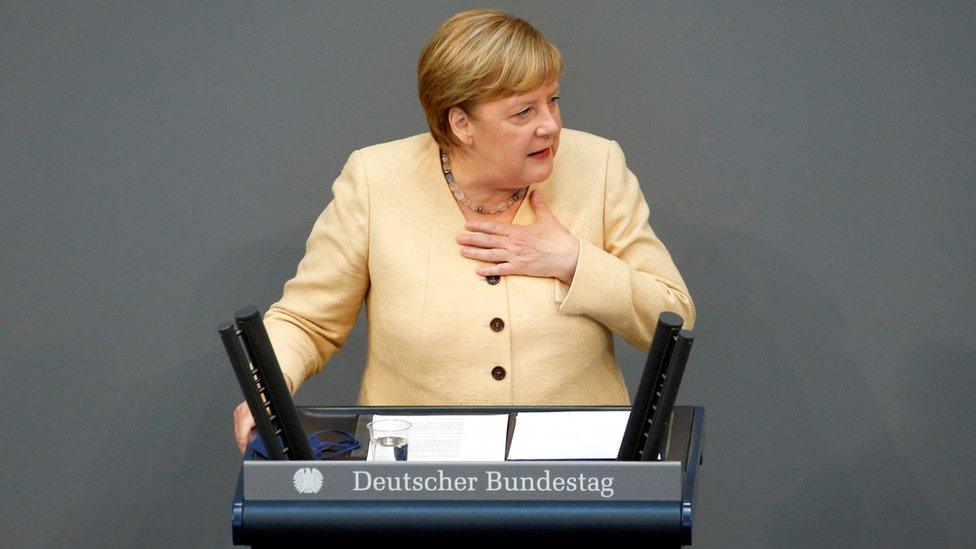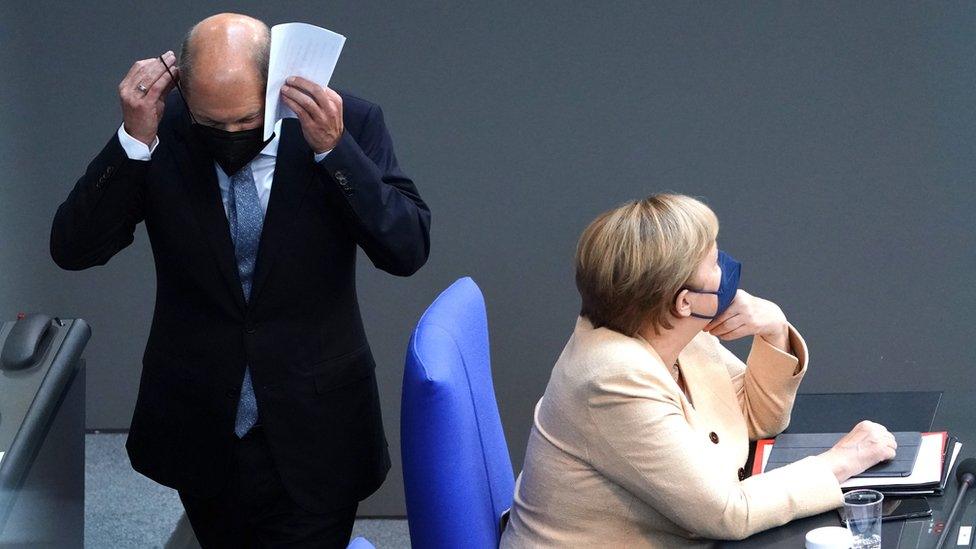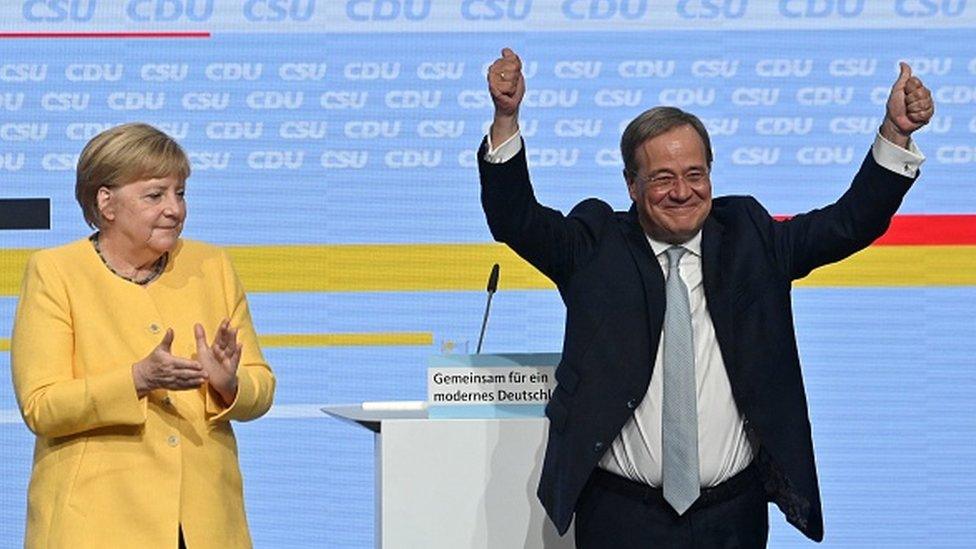German election: Merkel attacks left as polls point to defeat
- Published

Angela Merkel has been in power for 16 years but her successor as party candidate is languishing in the polls
Chancellor Angela Merkel has targeted the centre-left favourite in the race to succeed her, in what is likely to be her final appearance before MPs.
In a bid to bolster her own party's candidate ahead of Germany's 26 September elections, the outgoing leader was bitterly critical of Olaf Scholz, whose SPD is leading the polls.
Mrs Merkel warned that a vote for his party could let in the far left.
"Germany faces a choice of direction," she said.
Voters had two options, she said: either a government made up of the centre-left and the Greens "which accepts the support of the left-wing party, or at least doesn't exclude it", or a conservative-led government with her party's candidate Armin Laschet as head.
"That is exactly what Germany needs," she told the Bundestag, weeks before the end of her 16 years as chancellor. A Laschet government stood for stability, reliability, moderation and centrality, she contended.
'We are all guinea pigs'
Mr Scholz's Social Democrats have taken a six-point lead in the latest opinion poll, ahead of Mr Laschet's conservative CDU and its sister party, the CSU. The CDU leader's campaign has been widely derided as lacklustre and strewn with gaffes.
Mrs Merkel was also scathing about a coronavirus comment on the campaign trail made by Mr Scholz, the current vice-chancellor (the SPD are the junior partner in the current governing coalition).
During a radio interview last week in which he called on unvaccinated Germans to join those 50 million already double-jabbed he said: "We were all guinea pigs for those who until now have held off."
Mrs Merkel hit back in the Bundestag on Tuesday, saying "no-one is a vaccine guinea pig. Olaf Scholz isn't and I'm not."

Mr Scholz made light of the chancellor's attack, pointing to her party's position in the polls
Her remarks are seen as highly unusual because she has so far avoided an outright attack on her coalition partner before MPs.
Mr Scholz defended his choice of words as a laid-back campaign trail joke, suggesting those who failed to see the funny side had little to laugh about because of their faltering position in the opinion polls.
The latest opinion poll for the Forsa Institute suggests his party is heading for 25% of the vote, while the CDU has fallen to as low as 19%. Their other key rivals, the Greens, have dropped to 17%, according to the poll for RTL and ntv, which said the 19% was thought to be the conservatives' lowest rating ever measured by Forsa since 1949.
Mr Laschet's own performance in the campaign has been heavily criticised in recent weeks. The Forsa poll suggests only 9% of Germans back him as chancellor, with Mr Scholz polling 30% and the Greens' candidate Annalena Baerbock on 15%.
However, the pollsters also suggest that had the leader of the CDU's Bavarian sister party, Markus Söder, been chosen as the conservative candidate to succeed Mrs Merkel then he would be far ahead of the party's rivals.

You may also like to see:
Angela Merkel has worked with four US presidents in 16 years
- Published25 September 2021
